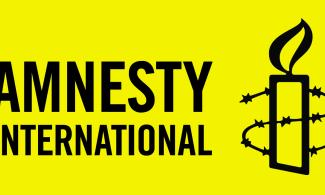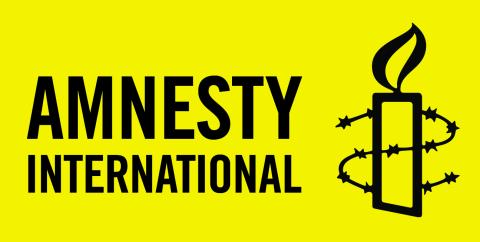
International rights group, Amnesty International on Monday accussed the Federal Government and the Nigerian military of gross violations of human rights in the prosecution of the war against Boko Haram.
International rights group, Amnesty International on Monday accussed the Federal Government and the Nigerian military of gross violations of human rights in the prosecution of the war against Boko Haram.
The group said at least 340 detainees arrested in the course of the war against the insurgent group died in military detention facility in Maiduguri due to disease, dehydration and starvation in 2017.
"Reports continued of extrajudicial executions, enforced disappearances, and torture and other ill-treatment, which, in some cases, led to deaths in custody. Conditions in military detention conditions were harsh. Communal violence occurred across the country. Thousands of people were forcibly evicted from their homes," the group said its annual report on Nigeria made available to SaharaReporters.

Giving instances of rights violations by the military in 2017, Amnesty cited the bombing of IDP camp in Rann, headquarters of Kala Balge local government, in Borno state on 17 January which led to death of least 167 civilians, including many children.
"The military arbitrarily arrested and held thousands of young men, women and children in detention centres around the country. Detainees were denied access to lawyers and family members," Amnesty International added.
It noted that though the army released 593 detainees in April and 760 in October, the military detention facility at Giwa barracks, Maiduguri, is still holding more than 4,900 people in extremely overcrowded cells.
The group said the 340 detainees died in the Giwa Barracks detention facility due to disease, dehydration and starvation in 2007.
"At least 200 children, as young as four, were detained in an overcrowded and unhygienic children’s cell. Some children were born in detention.
"The military detained hundreds of women unlawfully, without charge, some because they were believed to be related to Boko Haram members.
"Among them were women and girls who said they had been victims of Boko Haram. Women reported inhuman detention conditions, including a lack of health care for women giving birth in cells."
Amnesty also noted that a Special Board of Inquiry to investigate allegations of gross violations of human rights, established by the Chief of Army Staff, found that Giwa barracks was extremely overcrowded, with poor sanitation and insufficient ventilation, factors which resulted in detainees’ deaths. But it noted that the Board cleared senior military officers, alleged to have committed crimes under international law, of wrongdoing.